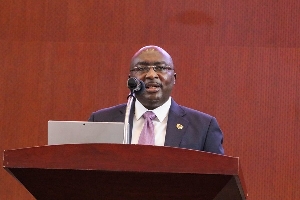Health News of Monday, 5 January 2015
Source: GNA
No maternal deaths recorded at Suhum Government Hospital in 2014
Dr Tetteh Ashong, Medical Superintendent of the Suhum Government Hospital, has disclosed that the hospital did not record any maternal mortality in 2014.
Speaking in an interview with the Ghana News Agency (GNA) at Suhum, Dr Ashong said, the main challenge of the hospital in 2014 was the delay in reimbursement by the National Health Insurance Scheme (NHIS).
Dr Ashong said, as at the end of the year, the NHIS has paid the hospital up to June 2014.
He explained that, 85 percent of the hospital`s income is from the NHIS, and as a result, the hospital is forced to rely on other sources of income which are not enough.
Dr Ashong said, the other major challenge was the load shedding, and the hospital had to spend GhC 30,000 on fuel to run a generator for power to enable the hospital staff to offer their services to the people in the Municipality and beyond.
The Medical Superintendent disclosed that the management of the hospital wants to expand the theatre, and create additional space for operation, and to also build a dental clinic, and expand the children`s block.
Dr. Ashong appealed to stakeholders and opinion leaders in Suhum, as well as public-spirited individuals who can help the hospital to come and support it in its efforts.
Dr Ashong said management of the hospital has completed the construction of the administration and emergency blocks, but needs medical equipment and computers to furnish the place.
He expressed his gratitude to the Member of Parliament for the area, Mr Fredrick Opare-Ansah, for contributing 80 percent of the resources for the building of the administration and the emergency blocks.
He advised the public to eat good food, exercise regularly and go to the hospital for early diagnoses, than to be seeking help from other places first, before reporting to the hospital when their conditions are worse.
Dr Ashong advised people with chronic diseases to visit the hospital on scheduled dates, and urged families to adopt family planning in order to space their children.










